Sessions / Zoom 29 Posters

Connecting Arguments to Theory in Academic Writing #324
This presentation will introduce an approach to teaching academic writing that focuses on making connections between arguments based on observations and theories. Using this approach helps students to realize that engaging in academic writing requires them to become members of a community of practice. Examples of student work will be shown, and advice on how to apply this approach in your own courses will be provided.

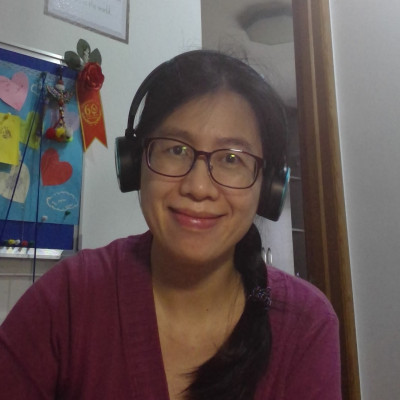
In-Class Extensive Reading for Non-English Majors #335
Encouraging non-English majors in Vietnam to read extensively is a big challenge because that necessitates not only resources, time, teachers’ instruction, but also students’ awareness of the importance of extensive reading in learning a second language. With the emphasis on transforming students’ attitudes and motivations to do extensive reading, the paper will share an action research on how in-class extensive reading was done with a group of 30 intermediate non-English majors at Vietnam National University.

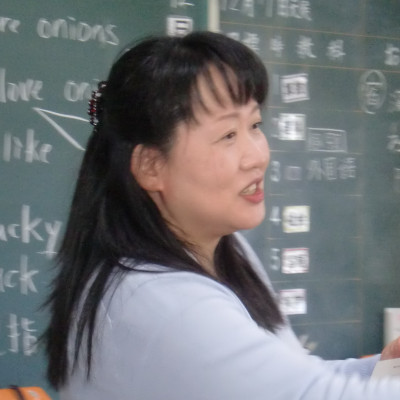
Teaching Phonics Using the Jolly Phonics Approach #339
This is a report of a pilot study on teaching phonics to fifth and sixth grade students in Mie, Japan. A revised course of study will be implemented in 2020 and phonics will be a new element added to the fifth and sixth grades foreign language curriculum. Due to the time constraint, we modified the Jolly Phonics approach and taught 18 sounds in two semesters. All the students enjoyed learning phonics and acquired the sounds.
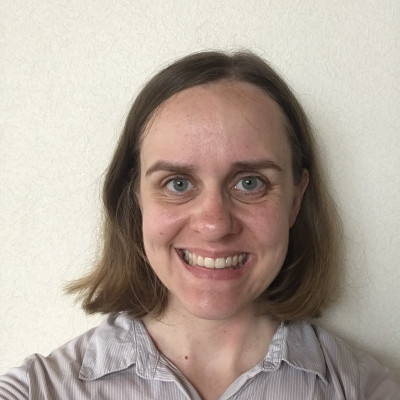
Yanny or Laurel?: Proficiency and Perception #341
A certain ambiguous audio clip is perceived as “Laurel” by some listeners and as “Yanny” by others. For Japanese learners of English, could language proficiency be a factor affecting which word they hear? This poster shows the results of a study demonstrating that higher-proficiency Japanese learners of English are more likely to hear the phonetically-challenging “Laurel” than low-proficiency learners are.


The Chorus English Approach in Non-children’s EFL #347
Singing popular songs as a group can increase motivation and group cooperation, lower anxiety, and improve pronunciation and intonation. Chorus English is a novel approach to singing in non-children’s EFL classes. Rather than using music as a filler or a hook, its goal is singing songs well from a linguistic perspective. It can be utilized by both new and experienced teachers who aspire to enrich their student’s communicative capacities and social skills.

CLIL and STEM Through Building Electronic Circuits #313
This is a case study of CLIL and STEM task-based learning courses for college freshmen majoring in engineering. Our students are familiar with electronics theory, but are unaware of actual circuits and components. Students build electronic circuits using breadboards and discrete components, and explain construction and operation of circuits bilingually. Although our results are not necessarily generalizable, our experience may assist practitioners seeking course designs or teaching plans for CLIL, STEM, and ESP.

Learner-Generated Materials Based on TED Talks #327
Developing learning materials encourages students to shape their own learning. It requires careful consideration of language and also critical-thinking skills. It promotes learner autonomy, collaborative learning, and active engagement (Moiseenko, 2015). This presentation will primarily focus on the generation of learner-designed materials using the TED Talks platform and how the creation and use of these materials fits into a content-based undergraduate university course.


How Can Teachers Escape Their “Egg Cartons”? #329
EFL teachers require sustained collegial learning that is relevant to what goes on inside their classrooms. This presentation will highlight 10 21st century professional development (PD) strategies. The researchers will discuss the data that emerged from an intensive three-day PD workshop for in-service English teachers (n=17) and a follow-up online questionnaire. This data helped the research team establish a professional learning network (PLN) for Japanese secondary school EFL educators that supports organic and collegial learning.



Evaluating Online Vocabulary Tools #331
This paper reports on a blended learning evaluation of English vocabulary systems (Gruba et al., 2016) at a midsize Japanese university as part of an Assurance of Learning (AOL) initiative. Methods include meso-level evidence gathering and micro-level comparison between two English classes—one using English Central and one Word Engine. The results include emerging categories for comparison and how some of these programs compare side-by-side.

Feedback Procedures to Promote Reflective Learning #344
In this poster presentation I will discuss using a reflective learning environment via (a) the delivery of near-immediate teacher and peer feedback and (b) subsequently requiring students to submit reflections about their learning experiences using cloud computing. Notably, I will discuss (a) whether students were able to understand corrective feedback about several targeted grammatical forms (such as the -s morpheme), and (b) whether they subsequently demonstrated correct knowledge of the linguistic form (uptake).

Project-Based Learning Through Magazine Making #349
In the classroom, project-based learning (PBL) can equip learners with skills such as problem solving and collaboration skills, going beyond grammar usage and lexical knowledge. This presentation examines PBL through a magazine-making project at the university level. A step-by-step outline of the method used to create the magazines is included, along with a discussion regarding the benefits and limitations of such projects.
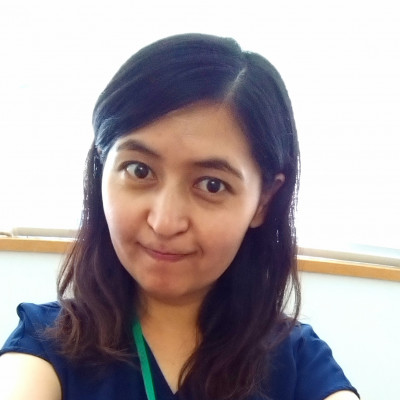
A Conversation Analysis of Courtroom Interaction #314
This conversation analysis study aims to explore the politeness and impoliteness strategies applied by participants in a reality TV courtroom. The results show that positive impoliteness and positive politeness strategies are used more frequently than other strategies, indicating that the participants are likely to attack or save another’s positive face. Findings indicate that power dynamics among participants influences how and when they apply impoliteness strategies.


Telling Stories That Bind and Inspire #326
The ability to create compelling narratives that inspire and promote cooperation is the most powerful tool humans possess. How can we apply a narrative structure effectively to language learning? Everyone has a story to tell. Presenters will demonstrate how simple, concrete, original, relatable and comprehensible narratives, critical incidents, or experiences can be easily constructed and shared to help learners develop a deeper understanding of the more abstract and ambiguous aspects of language, culture, and communication.

JFL Teacher Education Through Microteaching #333
日本語教師養成に関する大学の授業研究である。日本語教育を副専攻とする学部1年生を対象とし、日本語授業力の基礎を培うために日本語初級教科書の内容を教える模擬授業を行った。本研究では、模擬授業で学生が「学んだこと」、及び、「学べなかったこと」を考察し、高年次で行う日本語教育実習の課題等を明らかにする。

Pragmatic Roles of Visuals in ELT Textbooks #336
Many of the speech acts in pedagogical materials are introduced out of context. Beginner-level ELT textbooks are full of visuals which may facilitate learners to comprehend the texts. This study explores the role of these visuals associated with speech acts and how they can provide learners with contextual information to choose appropriate language use. In the end, some practical suggestions are made as to how teachers might compensate for the insufficiencies of these materials.

NS-NNS Interactions Jointly Accomplished Abroad #337
The research project is a case study designed to investigate the development of Japanese ESL learners’ interactional competence (IC) by collecting and analyzing data during the students’ study abroad program. During the students’ five-month study abroad program in the US or Canada, informal conversations between Japanese ESL learners and native speakers were recorded. What NNSs can say changes according to the participation in NS-NNS interactions. Therefore, this study recognizes that interaction is jointly accomplished.
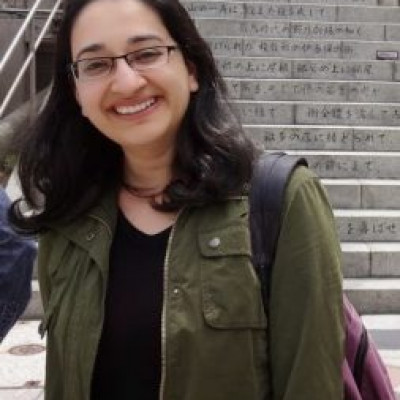
Learnability of Japanese Case Particle ‘Wo’ #340
Is inter-language shaped by universal properties of language? If so, what is the role of the L1 or of input? This study explores these questions by looking at how learners of Japanese use case particle ‘wo’, which marks the patient of transitive verbs, through two surveys - one targeting Hindi speakers and a second targeting Persian speakers of beginner to upper intermediate levels.

Supporting Students With Dyslexia on English Tests #351
This poster shares a case of reasonable accommodation for a student with dyslexia on a standardized English proficiency test to discuss some problems and solutions. The student took the test using some technologies such as a tablet PC with screen reader software and noise-canceling headphones. Although this accommodation enabled measurement of her real ability in listening and reading, there were still serious problems that other English tests can also include.
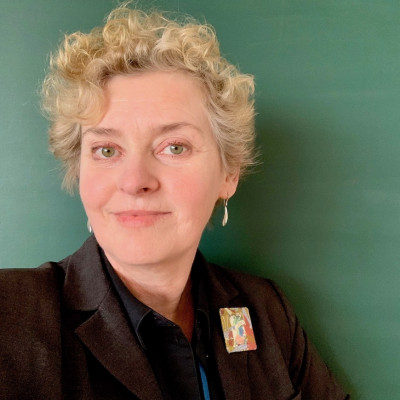
Neurodiversity, Studying, and Teaching Language #355
Neurodiversities. What are they and how do they affect performance in the language classroom? This poster will look at the impact of ADHD, dyslexia, dyspraxia, dysgraphia, dyscalculia, color issues and how they affect learning for nearly 12.6 million people in Japan. Come and learn the facts and how to help students who appear to be struggling in mainstream classrooms. The poster will cover what clues to look for and where to find publicly-available resources.
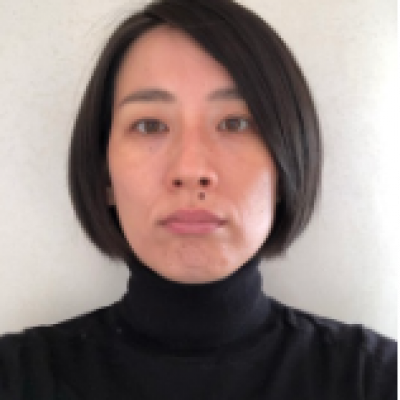
Interactional Competence of Japanese SHS Students #317
Using conversation analysis (CA), two sets of conversation data from two pairs of Japanese high school students with different proficiency levels in English were analyzed. Key differences emerged in how they interacted in English in relation to their communication strategy use and turn-taking practices. This poster presentation will be of interest to those who wish to understand how students of different proficiencies navigate communicative tasks.
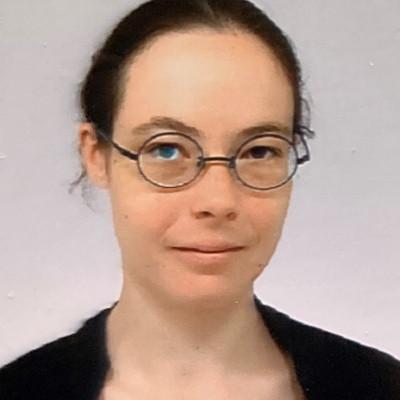
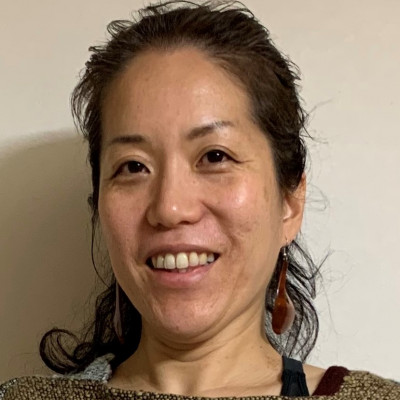
Communicative Writing for Building Communities #318
Writing tasks can be isolating for students as the audience is often undefined or solely the teacher. Moreover, students can struggle in finding ideas they truly wish to communicate to a wider audience. By combining research on communicative language learning and group formation, attendees of this poster presentation will learn about activities that can be implemented in a wide range of language learning settings to increase writing skills and foster a sense of community.


Anxiety, Interaction, and English Communication #320
This poster explores the interplay of social anxiety and an interaction-focused oral curriculum. Results from pre- and post-surveys examining aspects of social anxiety, learners’ comments on the factors that helped mediate feelings of anxiousness gathered, and implications for helping anxious learners to adjust to communicative classrooms are discussed.
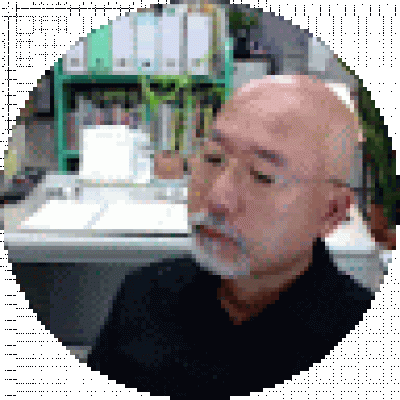
L2 Reader’s Attitude and Extensive Reading #321
In this presentation, the dual influences of a positive reading attitude promoting more reading and more reading creating a more positive reading attitude will be displayed. The data was analyzed to see if there was any correlation between the students’ reading attitudes before and after the program and the amount of reading they did during the program. The data gathered for the present study provided evidence that extensive reading can change learner’s reading attitudes.
Revising for Conciseness #330
In writing, more is not always better. Writers who want to keep the attention and confidence of their readers revise for conciseness. The following poster presentation outlines several methods and techniques for achieving concision in essay writing. Specific emphasis is given to helping language learners revise empty phrases, meaningless announcements, redundancies, and expletive constructions. The presentation highlights several methods to get learners started with concision, which includes writing haikus and halving text exercises.

Peer Support Choices Outside the Writing Class #342
In student peer review, learners exchange writing with a classmate and annotate it with comments about language use and/or content. Drawn from an ethnographic study of Japanese EAP students at a university in Tokyo, this presentation will discuss what choices during out-of-class peer review activities reveal about the place of existing social relationships, gender, and wider culture. Teaching implications for encouraging students to work together and form communities outside the classroom will be presented.

The Toulmin Model for Developing Arguments #350
Students often have difficulties writing logical, cohesive arguments in English. This poster presentation introduces and applies the Toulmin model of argumentation to student arguments. The Toulmin system identifies three indispensable (i.e. the claim, the grounds, and the warrant) and three optional elements in every argument. The Toulmin model can help participants have a better understanding of how logical arguments achieve cohesion as well as guide students to write them.

Barriers to Teacher Use of Technology for Teaching #323
The purpose of this qualitative action research study was to explore the perceptions and experiences of English as a foreign language (EFL) college teachers in Eastern Japan to overcome barriers to integrating information and communication technology (ICT) in their daily teaching practice. The major themes included: software too difficult to use for teaching purposes was a barrier to ICT integration, and faculty contemplation of learning objectives/outcomes informed decisions to integrate ICT successfully.
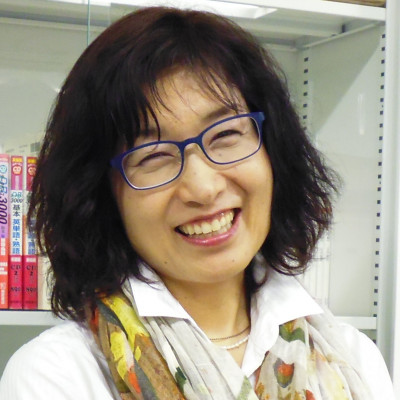
Teaching a Large Class: Key Issues for Success #332
There seems to be no established “methodology” to teach a large class. The bigger the class size becomes; the longer things take. The physical and psychological impacts, such as visual and audio effects, and class rapport, must also be considered. The presenter will suggest some ways to reduce time lags and maximize class efficacy from her experiences. In addition, she will show a comparison of seating arrangements, test scores, and an evaluation of the class.

Courseware in Blended Learning Classrooms #334
This study is to document Japanese undergraduate students’ self-reported impressions of using multimedia courseware for improving their English speaking skills. The results suggest that the benefits include students finding satisfaction with the opportunity to work independently and appreciating the easily accessible and well-ordered quizzes and tests. Further pedagogical implications associated with developing students’ speaking skills through blended learning are also discussed.

Community Service in an Outdoor Classroom #338
This presentation depicts how a service-oriented camp in a rural setting can give Japanese and international students the chance to collaborate in English, promote social responsibility, and contribute to a broader local and global community. Service-related activities are designed to fortify the value of helping others, develop cultural competency, instill an appreciation for local history, and create a heightened sense of community, which in turn translates into better classroom participation and higher academic achievement.

A Communicative CLIL Science Course for Engineers #343
This presentation reports on the design and delivery of a mandatory communicative English as a medium of instruction (EMI) content and language integrated learning (CLIL) course to second year engineering and science students. Classes combine the use of authentic science-focussed material, edited for student level, with student discussions and reporting. In addition to course details, student feedback and teaching issues will also be reported on.
World Education: Creating a Learning Community #348
This poster presentation shows how a two semester course was developed to achieve two main aims. Firstly, a major change in course organization at a university meant that the needs of a new cohort of students had to be addressed. Secondly, a group of international students and teachers are at the university for one or two semesters every year and there is a need to create more opportunities for them to learn with local students.

Medical Role-Plays for Future English Encounters #352
This presentation outlines how role-play activities were used to prepare medical students for potential future encounters with non-Japanese patients. Each role-play was designed to provide a forum for students to improve their linguistic, communicative, and intercultural competencies while sharing in feedback sessions with their instructor and peers. This presentation highlights role-play activities for third-year Japanese medical students, including the rationale, the practicalities of designing and implementing the activity, and the outcomes.

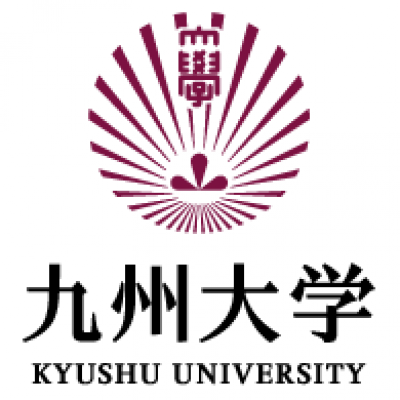
Widening Participation in a SciTech Community #316
This collaborative research was undertaken to facilitate greater self-directed learning initiatives. Four iLearn services were offered to encourage wider participation in the SciTech community outside of student labs. Data analysis of audio recordings indicated students’ capacity to give and receive critical feedback on various aspects of their learning, particularly on choice of research methodology, data analysis approach, specialized lexis, poster design, non-verbal language, and to a lesser extent, syntax.

Improving EL engagement through podcast production #322
For extensive listening assignments, how do teacher created podcasts compare to other media in terms of student engagement? This presentation will share my experience creating podcasts specifically for students and how students engaged with said podcasts. How often do those choose my podcasts and how often do they choose to listen to other podcasts or videos? I will share my findings of what topics students engage with most and discuss ways to improve that engagement.


Peer Support for Incoming Students #325
A Peer Support Team was set up to have second-year students assist the incoming students in their transition from high school to university. This presentation aims to explain the evolution of this program, including the selection of peer supporters and the activities involved. It will also look at the effect the program had on both student cohorts and options for further development in integrating incoming students into the university community.

Learning Together From Student Language Portraits #345
This presentation focuses on university students’ interpretations of their language portraits and on wider factors in society that the students saw as impacting their languaged lives. The presenter will also report on what a group of teachers learned together from such student perspectives and how they came to new ideas for developing a team-taught course on multilingual issues in society.


Forming Student Peer Support Communities on Campus #346
In this presentation, a case study of international student peer support communities in a private university in Japan will be reviewed. In particular, two pilot studies of training international student peer supporters will be explained. Also, the presenters will explore how to build an interactive and reciprocal community of teaching/non-teaching staff and students for intercultural understanding on campus in Japan. Possibilities of encouraging autonomous learning in language education in Japanese universities will be discussed.

Classroom-Based Assessment Without Tears: Flipgrid #353
Recording dialogues can help provide a base for doing classroom assessment which is transparent and engaging for students. This poster describes an action research project comparing can-do lists and descriptive rubrics used in conjunction with Flipgrid, a recording app, as a tool for raising students’ awareness of conversation strategies and target language and functions. The presenter draws on Dornyei’s models of motivation by analyzing how repeated use of this framework helped students develop their abilities.